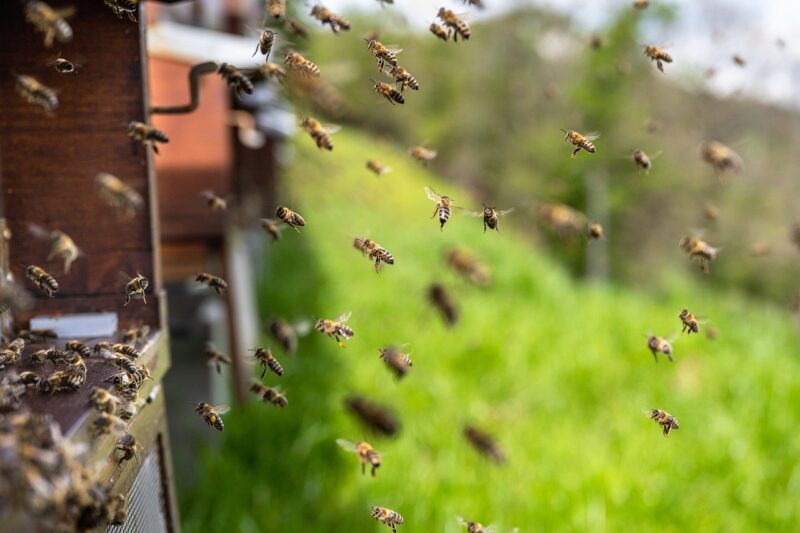
In recent years, beekeeping has surged in popularity among nature lovers and hobbyists alike. As environmental concerns grow and the awareness of bee population declines increases, many individuals are turning to this ancient practice not just as a hobby, but as a meaningful contribution to ecological health. This article delves into why beekeeping has captivated so many, the benefits it offers, and how to get started on your own beekeeping journey.
1. The Importance of Bees
Bees play a crucial role in our ecosystem, functioning as key pollinators for many crops and plants. It is estimated that one-third of the food we consume relies on pollination, primarily by bees. The decline in bee populations over the last few decades has raised alarms regarding food supply stability, biodiversity, and the overall health of ecosystems.
This growing awareness has motivated many nature lovers to consider beekeeping as a way to support these essential creatures. Learning about the lifecycle, behaviors, and needs of bees can foster a deeper appreciation for nature and the interconnectedness of species.
2. A Connection to Nature
In a fast-paced, technology-driven world, many individuals yearn for a connection to the natural environment. Beekeeping provides a fulfilling outlet that encourages practitioners to immerse themselves in nature. By observing the dynamics of a bee colony, hobbyists learn patience, responsibility, and the significance of biodiversity.
**Benefits of Connecting with Nature:**
- Stress Relief: Spending time outdoors and engaging with bees can be a relaxing and meditative practice, alleviating the stresses of everyday life.
- Physical Activity: Managing beehives involves physical tasks that promote a healthier lifestyle and foster outdoor activity.
- Environmental Awareness: Beekeepers become advocates for ecosystems, often sharing knowledge about sustainability and the importance of pollinators with their communities.
3. Honey: A Rewarding Yield
One of the most enticing aspects of beekeeping is the ability to harvest honey. After dedicating time and care to beehives, keepers are rewarded with sweet, natural honey, which can be enjoyed or sold. Honey not only enhances food flavors but also has numerous health benefits.
**Health Benefits of Honey:**
- Natural Energy Boost: Honey is a great source of carbohydrates, providing instant energy for activities.
- Rich in Antioxidants: Honey contains antioxidants that can help reduce the risk of chronic diseases.
- Healing Properties: Honey has antibacterial properties and has been used in natural remedies for soothing sore throats and wounds.
In addition to honey, beekeeping can produce beeswax, propolis, and royal jelly, all of which have various applications in cosmetics and health products. This diversity allows beekeepers to explore different avenues of entrepreneurship.
4. Community and Learning Opportunities
Beekeeping is an engaging activity that often brings people together. Many local communities have beekeeping clubs, workshops, and events that allow novice beekeepers to learn from experienced practitioners. This collaborative environment fosters knowledge sharing and creates a strong sense of camaraderie.
**Advantages of Joining Beekeeping Communities:**
- Support Network: Access to guidance, mentoring, and solutions to common problems.
- Resource Sharing: Members can share equipment, bees, and best practices, making the process less daunting.
- Local Pollinator Initiatives: Participate in community projects that aim to support local bee populations and educate the public about their importance.
Engaging in beekeeping classes or online forums can provide valuable education on best practices and safe management techniques, enriching your overall experience.
5. Getting Started with Beekeeping
For those intrigued by beekeeping, here are some steps to get started:
**Step 1: Research**
Begin by reading books, articles, and watching documentaries about bees, their behaviors, and beekeeping practices. Understanding the basics is crucial for a successful start.
**Step 2: Find a Mentor**
Seek guidance from local beekeeping clubs or seasoned beekeepers. A mentor can offer priceless insights and serve as a local resource.
**Step 3: Purchase Equipment**
Invest in necessary equipment, including hives, protective gear, and tools for honey extraction. Look for reputable suppliers that cater to beginners.
**Step 4: Start Small**
When starting, consider beginning with one or two hives to learn the ropes before expanding your apiary. This allows you to understand the nuances of hive management.
**Step 5: Stay Committed**
Like anything rewarding, beekeeping requires diligence and commitment. Regularly inspect your hives to ensure the health of your bees and enjoy the process!
Conclusion
Beekeeping is more than just a hobby for many nature lovers; it’s a way to reconnect with the environment, contribute to ecological health, and enjoy the products of nature. Whether you’re driven by environmental concerns, the allure of harvesting honey, or connecting with your community, beekeeping offers a fulfilling pathway. With patience, dedication, and a little research, you can join the growing ranks of beekeepers making a difference for bees and the planet.
So why not take the plunge? Your adventure in beekeeping awaits, and countless bees will thank you for it!






